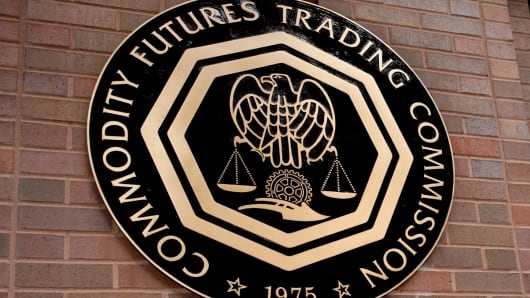When the global financial crisis kicked into high-gear a decade ago, most Americans learned the hard way that questionable decisions on Wall Street can lead to dire consequences on Main Street.
We all saw how pockets of unethical behavior by some devils in the mortgage-backed securities market ultimately boomeranged on average homeowners.
This included the use of a particular financial product — the credit default swap — which fuel-injected a spiral into the Great Recession. Legislators and regulators left sifting through the rubble were forced to accept that their lax approach to policing our financial markets was flawed. To paraphrase philosopher Marshall McLuhan: They drove into the future using only their rearview mirrors.
Fortunately, that's changing, especially with regard to credit default swaps. This shift recently prompted regulators to peer around a particularly cumbersome corner of the $13 trillion derivatives market. The Commodity Futures Trading Commission recently issued a much-needed warning in response to possible manipulation of CDS trades by a couple of the biggest names on Wall Street.
While many, justifiably, continue to associate the swaps with crisis-era mortgage mayhem, the product does serve a large and legitimate purpose: allowing businesses and traditional investors to hedge credit risks related to their assets, ranging from agricultural commodities to corporate bonds.
For example, a portfolio manager running a fixed-income mutual fund may purchase a CDS linked to a bond issued by a company because it represents "insurance" in the event of a bankruptcy. A reliable CDS market can help provide investors with confidence to invest in companies that may otherwise not be able to raise affordable capital.
After seeing the trouble caused by past devils in the derivatives market, it's encouraging that the CFTC has been quick to call out potential abuse and manipulation in the CDS marketplace today.
In late April, the agency issued a statement related to Blackstone Group's GSO Capital Partners, which was finalizing a deal with homebuilder Hovnanian Enterprises to get the perfectly solvent company to intentionally default on a small portion of debt in exchange for sweetheart refinancing terms. Not surprisingly, GSO holds more than $300 million in credit default swaps that would pay out in the event Hovnanian defaults.
Hovnanian, which appears to have almost $500 million in its coffers, took the next step when one of its wholly owned subsidiaries waived an interest payment due to itself on bonds it purchased, what people in the market have called a manufactured default.
The CFTC sent a message shot across the bow of all devilish CDS market manipulators, warning them not to get even close to manipulation of these products. The agency's statement was clear in saying that manufactured credit events may constitute market manipulation and may severely damage the integrity of the CDS market.
Furthermore, the CFTC asserted that it "will carefully consider all available actions to help ensure market integrity and combat manipulation or fraud." Chairman Chris Giancarlo — who has done a grand job, in my view — put a fine point on this recently by noting that his staff is also coordinating with the Securities and Exchange Commission. That is a long-awaited development that will benefit the entire CDS marketplace.
As for GSO and Hovnanian, they appear to be ignoring regulators' warnings, but my experience is that they do so at their own peril. In this instance, the International Swaps and Derivatives Association will convene at the end of the month to decide whether the missed interest payments represent a legitimate default by Hovnanian. (CDS buyers cannot collect "insurance" payouts unless the association validates them.)
Fortunately, the ISDA committee slated to rule on the matter has ample justification to shoot the deal down. For example, it could reasonably infer Hovnanian's subsidiary waived its right to any interest payment once it knowingly purchased securities that it knew were going to be defaulted on as part of the agreement with GSO.
The big picture here is that even 10 years later, the lessons of the Great Recession should continue to serve as a clear reminder of what can happen across our markets and, in turn, the broader economy, if nefarious actions by financial devils are allowed to continue. Regulators should be clear and unequivocal — especially on combating manipulation — to ensure efficient and effective markets. If they do, it will benefit not only markets, but our economy and our country.
Former Commodity Futures Trading Commissioner Bart Chilton is an opinion editorialist, policy and political commentator, and consultant who appears in the media regularly. He is the author of "Ponzimonium: How Scam Artists Are Ripping Off America," and can be reached at bartchilton@bartchilton.com.




